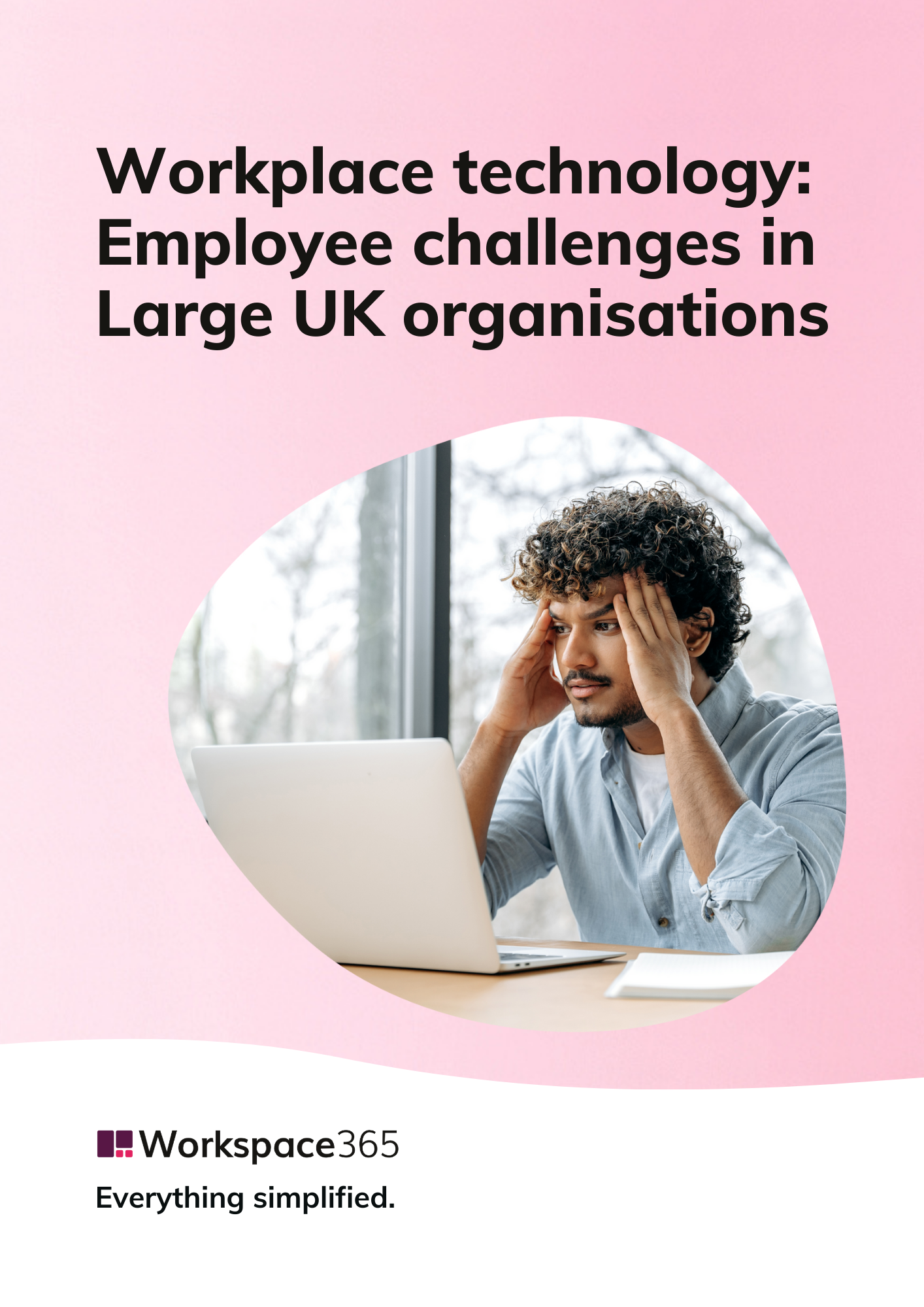Think about a single day in your legal practice. How many platforms do you open? Case management, billing software, e-discovery tools, client portals, and that’s just the start. What is meant to support productivity now feels like an obstacle course.
Not everything that beeps or buzzes is useful. The result? Reduced productivity. Increased stress. A higher risk of burnout.
Here at Workspace 365, we surveyed over 1,000 UK employees in large organisations to understand where legal tech is going wrong, and what to do about it. The message from the legal sector was clear: too many systems, too little integration.
IT challenges in the legal industry involve overly complex systems that slow people down and create a sense of overwhelm. The majority (64%) of those working in the legal sector would like their employer to invest in simplifying the digital workplace to improve productivity.
Too many systems, too little integrations
Lack of integration between tech tools means legal professionals are constantly switching between applications. According to The Law Society (March 2024),
‘Many firms have disparate systems that don’t share data, which can lead to inefficiencies and problems, from manual data entry and poor data quality to cybersecurity and reduced automation.’
Our survey found that:
- 50% of legal professionals struggle with managing multiple apps and systems.
- 57% cite notifications and distractions as a significant challenge.
The legal industry’s struggle with technology is further compounded by a reliance on generic workplace solutions. Just over 50% of legal professionals use all or most of their workplace software compared to 80% in HR. This highlights a significant gap in tailored legal tech solutions.
Workplace technology: Employee challenges in Large UK organisations
Work should be simple. That’s why we explored the Digital Employee Experience (DEX), surveying 1,000+ employees from UK organisations.

Digital burnout and work-life balance
Legal work is intense. But the overwhelming influx of digital noise is creating a new layer of strain. The Law Society Gazette (May 2024) warns:
‘The relentless flow of information and stimuli in the digital realm can overwhelm individuals' cognitive capacities, resulting in information overload.’
Legal professionals already face unique challenges when it comes to work-life balance. We found that 43% struggle to unplug from work when working remotely, more than double the 20% average across all industries.
Billable hours are being lost to bad systems
The inefficiencies caused by a fragmented digital workplace in the legal sector aren’t just frustrating, they’re costly. Every second spent navigating a clunky digital workplace is a second not spent on client work. And in law, that translates directly to lost revenue.
Alarmingly, 21% of legal professionals report feeling swamped and less productive due to overly complex tools, which is double the average across other industries.
We found that working arrangements outside of the office present further challenges, as 88% of law firms have embraced hybrid working, with many professionals working remotely from courts, client offices, or home.
The retention crisis nobody’s talking about
The legal professionals we interviewed said they are most likely to consider leaving their jobs due to overly complex workplace technology, with a staggering 86% expressing dissatisfaction. This was followed by HR professionals, over 50% of whom reported similar concerns.
‘There is a strong appetite for change in workplace technology. This isn’t just a productivity issue, it’s a critical challenge for talent retention,’ said Erik Nicolai, CEO and co-founder of Workspace 365.
He continued: ‘By simplifying the digital workplace and focusing on user-friendly solutions, businesses can unlock the full potential of their workforce and bring the focus back to high value tasks.’
The law sector has been slow to adopt legal tech solutions such as automation, AI-driven research tools, and cloud-based platforms, leading to frustration. The 2025 Report on the State of the Legal Market by Thomson Reuters said that firms investing in generative AI and automation tools are more successful in retaining top legal talent. On the other hand, traditional firms that resist technological advancements face higher turnover rates as lawyers seek workplaces that prioritise efficiency, flexibility, and work-life balance.
As technology continues to reshape legal practice, firms that fail to modernise risk losing skilled professionals to competitors who embrace innovation and digital transformation.
Technology should work for lawyers, not against them
To combat digital chaos, legal professionals need streamlined, integrated tools. The Law Society recommends:
‘Integrating legal accounts, customer relationship management (CRM), human resources (HR), case management and more creates a digital ecosystem that can better manage workload and client engagements.’
Simplification is key, one-third (33%) of legal professionals we spoke to want relevant notifications and information centralised in one place. For half (50%), this is a top priority.
‘Firms would be well-served to create and maintain a long-term technology roadmap, including a multi-year vision for upgrades and new technology adoption, risk mitigation practices, prioritised funding, and regular reviews to align with business objectives and market trends. ’Navigating the challenges of 2025: Law firms in the age of innovation, Thomson Reuters, March 2025
By creating a cohesive digital workplace focused on ease of use, legal professionals can quickly locate and cross-reference case law, access the latest regulatory updates, and retrieve version-controlled contracts without sifting through outdated files. With faster access to accurate information, they can draft arguments, review contracts, and prepare cases with greater confidence and precision.
Case closed!







